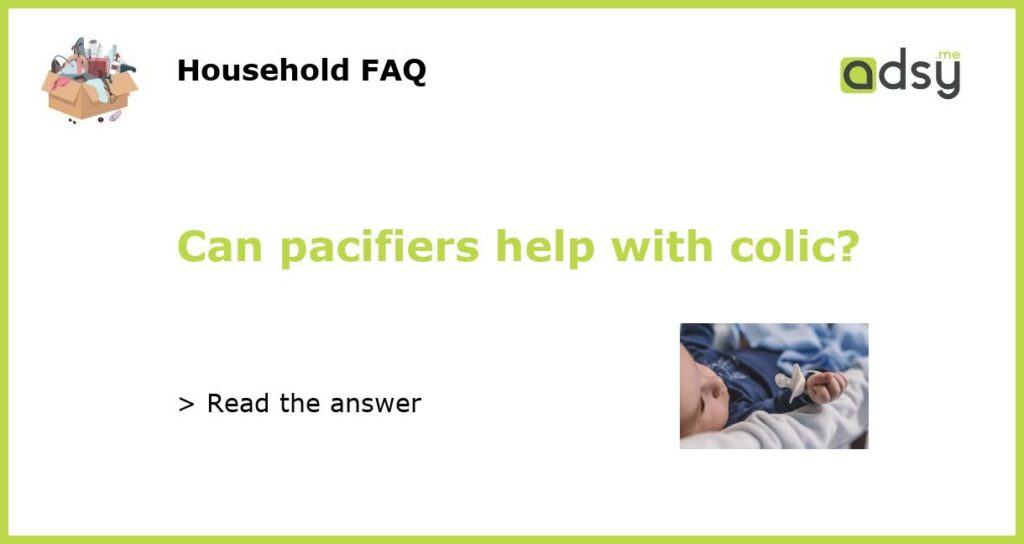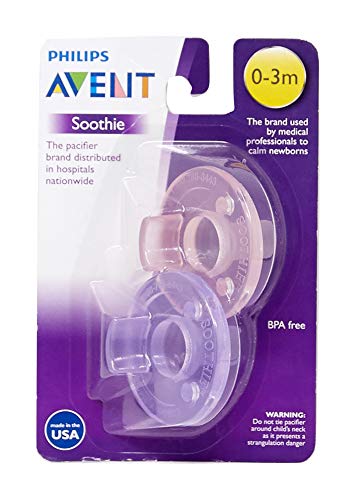What is colic and why do babies experience it?
Colic is a common condition that causes excessive crying in babies, typically starting around 2 to 3 weeks of age and resolving by around 3 to 4 months. It can be caused by a variety of factors including gas, digestive issues, overstimulation, or even an immature nervous system. Colic can be distressing for both the baby and parents, often leading to sleep deprivation and increased stress levels.
The role of pacifiers in soothing colic
Pacifiers, also known as soothers or dummies, have long been used as a tool to calm and comfort infants. While their primary function is to provide sucking satisfaction, pacifiers have also been found to help with the symptoms of colic. The rhythmic sucking action can help soothe a baby, providing a distraction from the discomfort caused by colic and reducing excessive crying.
How do pacifiers help with colic?
Pacifiers provide several benefits that can help alleviate the symptoms of colic:
- Sucking satisfaction: The natural instinct for babies to suck is often heightened during episodes of colic. Pacifiers can provide the sucking satisfaction that babies crave, offering a sense of comfort and relaxation.
- Distraction from discomfort: The rhythmic sucking motion of a pacifier can divert a baby’s attention away from the pain or discomfort associated with colic. This distraction can help ease the crying and provide a temporary relief.
- Calming effect: The act of sucking on a pacifier can have a soothing effect on babies, triggering the release of hormones such as endorphins, which can promote relaxation and reduce stress levels.
Are pacifiers a long-term solution for colic?
While pacifiers can provide temporary relief for colic symptoms, they should not be relied upon as a permanent solution. It is important to address the underlying causes of colic and seek appropriate medical advice if necessary. Furthermore, prolonged use of pacifiers can come with potential drawbacks, such as an increased risk of ear infections or dental issues.
Parents should consider using pacifiers as a short-term strategy to alleviate colic symptoms while actively seeking ways to address the root causes of colic and promote overall infant well-being.
Tips for introducing pacifiers to babies with colic
If you decide to try using pacifiers to help soothe your baby’s colic, here are a few tips to consider:
- Timing: Introduce the pacifier when your baby is calm and content, rather than during a colic episode. This will help them associate the pacifier with positive experiences.
- Proper hygiene: Make sure to regularly clean and sterilize the pacifier to maintain proper hygiene and reduce the risk of infection.
- Safety precautions: Choose pacifiers that are specifically designed for infants and follow the recommended safety guidelines. Avoid using pacifier clips or cords that can pose a choking hazard.
- Weaning: Once your baby outgrows the colic phase, gradually wean them off the pacifier to prevent potential dependence or dental issues.
Remember, every baby is unique, and what works for one may not work for another. It is essential to consult with your pediatrician or healthcare provider for personalized advice and guidance on managing colic and the use of pacifiers.






